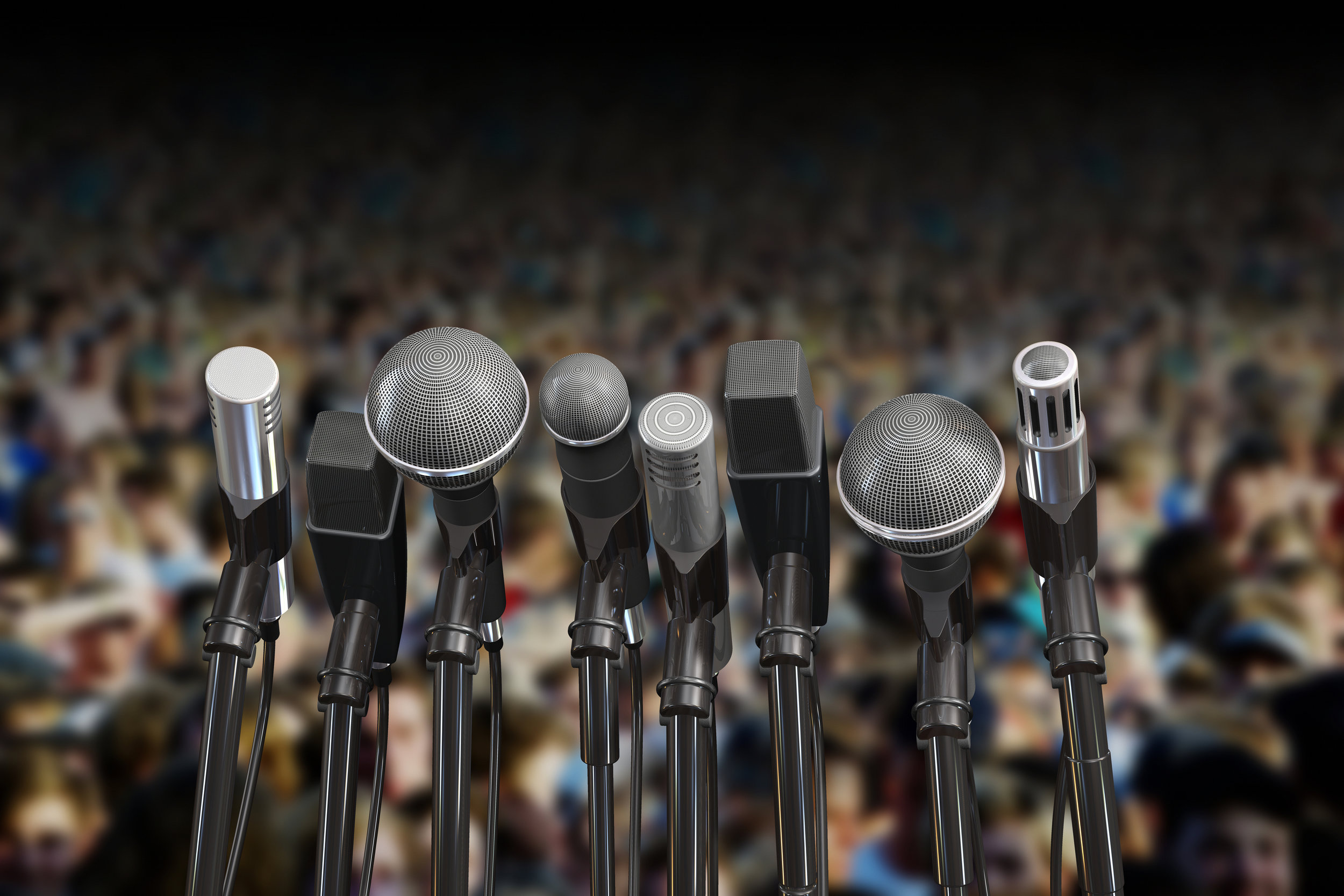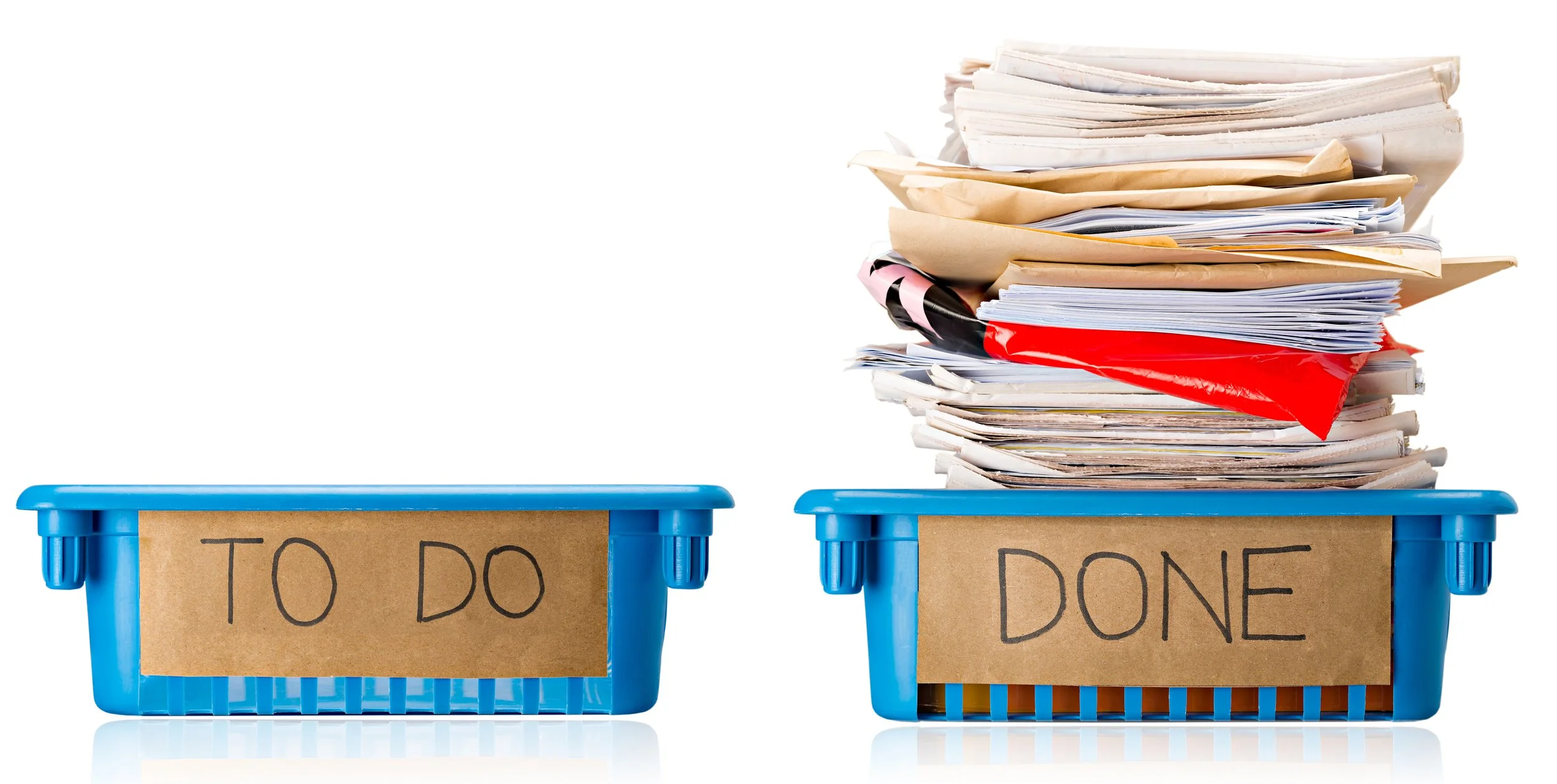20 Easy Ways to Boost Your Productivity
FROM BUSINESS NEWS DAILY / BY MATT D’ANGELO
It can be hard to improve your productivity. These easy tips can help you be more productive without a herculean effort.
Create a workspace that is clean, comfortable, decorative and free from distractions.
It can be helpful to take short breaks, move around, switch locations, put on some music, meditate and eat lunch with your co-workers.
Create daily goals and to-do lists to prioritize and delegate your tasks efficiently.
This article is for anyone looking to improve their workplace productivity.
Every business expert claims to have “productivity hacks” that can help you get more done in less time. Of course, you can implement some commonsense tools to be more productive, like taking brief breaks, creating effective to-do lists and resisting social media.
We’ve found some of the top strategies you can implement to become more productive, but it’s important not to view these tips as hacks. There is no hack for becoming more productive; there are only new habits we can implement to try to be better, more efficient workers. By building in some of these habits, you’re taking the right steps toward becoming more productive.
If you want to become more productive, consider implementing some of these productivity strategies.
1. Streamline your space.
Before you do anything else, take a few moments at the start of each day to organize and declutter your workspace. A clutter-free environment helps you think more clearly and produce better results, said Kristoph Matthews, head of engineering at NewtonX and founder of on-demand storage company Boxbee. By cleaning up and organizing your space, you can greatly increase your productivity and limit the time you spend searching for items.
2. Add pops of color or live plants.
Color can have a major effect on your mood and productivity throughout the day, said Jenny Gauld, interior designer for office furniture and accessory retailer Turnstone. Blue can impart a calming feeling and help you focus, while red may be great for work requiring accuracy and attention to detail. Plants can also help people focus: A study by the American Society for Horticultural Science found that workers who were exposed to plants in their workspace reported feeling less stressed and more productive.
3. Decorate your workspace.
In addition to adding some color and plants to your workspace, decorating your desk or cubicle with a few personal knickknacks can help you feel more relaxed, which can boost your productivity. Gauld suggested adding meaningful career memorabilia, such as diplomas, awards, and other decorative items that help you feel appreciated and will motivate you.
4. Get your most dreaded task out of the way.
Everyone has at least one task on the to-do list that keeps getting pushed back because the thought of doing it seems awful. That task is actually the one you should complete first, according to Matthews. Instead of waiting until the last minute to finish it, get it off your plate as soon as possible. Your other tasks will seem less daunting by comparison, and you’ll stop stressing about that one task all day, making you more productive overall.
5. Prioritize and delegate your other tasks.
Your focus should go to the most important tasks first, so think about everything you do and just how pivotal or trivial each is. If you can, set aside the low-priority items and come up with a plan to delegate or outsource them so you can spend more time on the things that add more value to your position and the company, advised Kathleen Kobel, productivity business coach and founder of Smart Business Mom.
6. Turn off your email notifications.
Instead of reading every email as it lands in your inbox, try turning off your notifications and check messages only at set intervals. Why? Constant email alerts popping up on your phone or desktop can break your focus. It takes 64 seconds for a person to recover from being interrupted by an email notification, according to Alex Moore, CEO of email productivity solution Boomerang.
7. Identify your most productive work time.
People vary in terms of when they are most productive. For example, are you a morning person or a night owl? It’s important to identify which hours of the day you feel most alert and attentive, and then dedicate those hours to your most important tasks. This is especially useful if you work remotely and can determine your schedule.
If you can’t create a schedule around your most productive work time, consider organizing your priorities in your current schedule based on which hours of your workday you feel most alert. Your productivity peaks are often in 90- to 120-minute intervals.
8. Take short breaks.
Whether it’s taking a walk, going to your favorite coffee shop, reading a magazine or visiting with a colleague, taking short breaks that are unrelated to your work can make a huge difference in your performance. Your productivity diminishes the longer you go without a break. Kobel explained that this is why it’s recommended that people don’t work more than eight to 10 hours per day. At a certain point, she said, your body and mind simply cannot produce anymore.
9. Move around.
Exercise isn’t just good for your body; it can also positively impact your work performance. Physical exercise has been shown to affect mental health and focus, said Sam McIntire, founder of Deskbright, an online learning platform dedicated to helping entrepreneurs and employees. A great way to feel sharper and more productive? Try going for a run in the morning or starting your day with a workout, McIntire suggested. It doesn’t hurt to sneak in some exercise on your breaks either.
10. Listen to music.
Wearing headphones doesn’t always mean you’re antisocial. When working, listening to your favorite tunes can help you get into the zone and knock out your to-do list, Gauld said. Be careful, however: While music can help people enter flow states, it can also serve as a distraction.
Did you know? Although the best music for productivity varies by person and activity, some of the best genres tend to be classical music and sounds of nature.
11. Switch locations.
Luckily, hybrid and remote working arrangements have become a common benefit for many employees. If your employer allows it, take some time during the week to work in a different environment. Meghan Khaitan, founder of seat belt device MyBuckleMate, said that a change of scenery can be a big help in boosting productivity. Head to the library or a local park (weather permitting), or find a place that’s quiet and full of natural light. Khaitan said this can help spur new ideas or shed new light on an old problem.
12. Write down your daily goals.
It’s not always easy to keep track of everything you need to do, so start each morning by writing down your goals for the day. When your focus is broken or you find yourself procrastinating, McIntire said, you can use the list to keep you on track, said McIntire. He suggested writing your list down on a Post-it or something that’s visible from your desk, then returning to it when you need a reminder of what you should be working on.
13. Stop trying to multitask.
Doing more than one thing at a time may seem like the best way to get all of your tasks done, but it can hurt your productivity more than it helps. Multitasking simply doesn’t work, and when you do it, you end up wasting time, Kobel said.
14. Follow the two-minute rule.
David Allen coined the two-minute rule in his bestselling book Getting Things Done. If you see a task or action that you know can be completed in two minutes or less, do it immediately. The principle is that completing the task right away takes less time than finishing it later.
If it’ll take longer than that, schedule it and get it into your productivity system so you can tackle it when you’re ready.
15. Make a simple to-do list.
Making a to-do list is essential to staying productive. Different methods work for different people: Some people use smartphone apps, others prefer keeping a handwritten journal. Regardless of how you create and track your to-do list, make sure it’s concise, realistic and flexible. List only those tasks that can be done that day, and don’t overwhelm yourself with a long list – that can compound feelings of anxiety and fatigue.
“A to-do list is terrific because it deals with past, present and future,” said Mark Ellwood, productivity consultant and author of The Poetic Path to Getting More Done. “Think about your high-priority tasks … it doesn’t mean you do those tasks first, but you plan for them first and then block off your time accordingly.” Want to ensure your employees are productive while working from home? Read our reviews of the best employee monitoring software.
If you’re looking for a simple formula by which to manage your to-do lists, Ellwood recommends identifying priorities that affect long-term results. Break those priorities down into responsibilities that should be completed today. Include additional requirements for the day, such as filling out timesheets. Discard or delegate other tasks; you shouldn’t spend your time on them.
According to Ellwood, it’s critical to think about what you want to accomplish a month from today, and then break down those priorities into small tasks that can be accomplished in a single day. For example, if you want to hire a new staff member by the end of the month, you can start that process today by posting a job listing. Breaking down a big goal like finding a new hire into bite-sized tasks, such as reviewing a few resumes or conducting an interview, makes it far more manageable and creates a sense of progress each day. Ellwood said that feeling of progress can help stave off those overwhelming moments.
16. Take back control of your schedule.
Staying productive, clearheaded and calm is really about feeling in control. Whether you’re delegating tasks to others or setting time limits for interruption, you are taking back room in your schedule to tackle the things you’ve deemed important.
Avoiding burnout and fatigue is essential to boost your productivity and memory retention. You can do this by simply influencing the direction of your day rather than being resigned to letting the direction of your day control your actions.
17. Get off social media.
Social media is a part of all of our daily lives. However, it would help if you were disciplined not to spend large parts of your day seeing what your friends thought of the latest movie or what they had for dinner last night. Many companies ban employees from accessing social media when they are at work, as it is a drain on productivity. If you are allowed to use social media at work, use it as a break for a few minutes, because if it becomes a regular habit, it can easily take over your day and impact the work you need to get done.
Did you know? There are other personal distractions that kill productivity as well, such as personal emails, personal phone calls and texts, and internet browsing.
18. Eat healthy.
What you put in your body matters. If you load up on junk food, you can end up with that 4 p.m. slump. To avoid feeling sluggish, prioritize healthy eating and nutritious snacks. No one works well on an empty stomach, but that means that afternoon snacking is an opportunity to give yourself a good, clean energy boost.
19. Eat lunch with your co-workers.
Although you may want to skip lunch to eat a salad at your desk while you work, research shows a boost in employee productivity and morale when employees eat together. Eating with your co-workers can help you build social relationships, bond with your team and grow your network. Additionally, it forces you to take a much-needed break to relax and unplug from work.
20. Practice presence and meditation.
Multitasking, using social media and engaging in other distractions can prevent you from accomplishing what you need to in a reasonable amount of time. Stay focused and engaged at your current task to get things done more effectively. One way to make this easier is to meditate each day. This gives you time and space to focus on one task – breathing – and this energy can be carried throughout the rest of your day.



